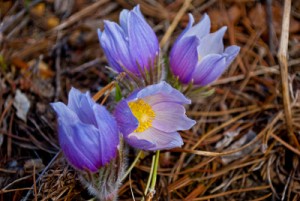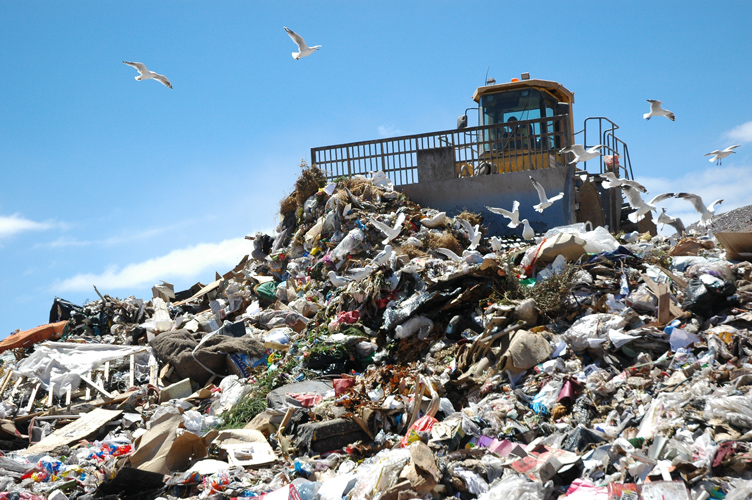A sermon preached by Rev. JoAnne Bogart, UCC Teacher and Minister
Easter Sunday, March 31, 2013 at the Union Congregational Church of Ward, Colorado.
Many Christians call Easter – Resurrection Day. It is the focal event of the Christian faith. Without it, we wouldn’t even have Christmas. The gospel scriptures tell us that more than 2,000 years ago, when the women went to the tomb to prepare Jesus’ body for burial, they found the tomb empty. Angels appeared and told the women Jesus was alive and had been raised from the dead. Later, the women sensed Jesus’ presence with them again – an unexplainable reappearance – and later the disciples had a similar experience. Hard to explain, but somehow we are aware of the truth of it. So Easter is about life, possibilities, about hope. The stories of Jesus’ death and resurrection let us know that things that appear to be lifeless are not necessarily dead. Not necessarily “dead deadâ€.
 Nature proclaims this lesson annually as bulbs and barren trees that appear dead in winter, in the spring spout vibrant, green leaves.The miracle of life continues as leaves make way for flowers of all colors hues, all, shapes and fragrances.
Nature proclaims this lesson annually as bulbs and barren trees that appear dead in winter, in the spring spout vibrant, green leaves.The miracle of life continues as leaves make way for flowers of all colors hues, all, shapes and fragrances.
Easter is also about making what appears impossible — possible. We are limited only by our imagination. Easter invites us to respond with hope and creativity and energy and optimism.
Now, in the season of new growth, we reflect on how God has grown us into full beings in Christ — taking us from trembling shepherds learning of a special birth at the first Christmas, through the trials and tribulations of Jesus’ ministry and death and resurrection to a place where we are invited to embrace the possibilities of a “new heaven and a new earth.â€Â All of us, then and now, are the ones who not only get to see it, live it, we are the ones to bring that new earth to fruition.
But wait. It is clear that planet Earth, as we observe it today, requires a new reading of biblical theology in order to assist in the creation of God’s new heaven and new earth. Our problems go too deep to simply rehearse again stories of a terrible flood and make us feel that nothing can be done to heal our world. Fortunately, theologians from around the world have given us a set of principles by which to investigate the biblical witness about Creation. These are from a book called Readings from the Perspective of Planet Earth, by Norman Habel, 2000.
These “ecojustice” principles are:
- The universe, Earth and all its components have intrinsic worth/value.
- Earth is a community of interconnected living things that are mutually dependent on each other for life and survival.
- Earth is a subject capable of raising its voice in celebration and against injustice.
- The Universe, Earth and all its components, are part of a dynamic cosmic design within which each piece has a place in the overall goal of that design.
- Earth is a balanced and diverse domain where responsible custodians can function as partners, rather than rulers, to sustain a balanced and diverse Earth community.
- Earth and its components not only suffer from injustices at the hands of humans, but actively resist them in the struggle for justice.
Throughout the Gospels, we have seen Jesus of Nazareth as a Shepherd, not just of people or flocks, but of Planet Earth. He lived lightly from the land and rejected the notion that Roman wealth and power were the source of meaning for people.
[pullquote_right]Easter is also about making what appears impossible — possible. We are limited only by our imagination. Easter invites us to respond with hope and creativity and energy and optimism.[/pullquote_right]The Kingdom, of course, was already much nearer than the people could imagine, requiring only a deep listening to the yearning of the human heart, and a reassessment of what mattered and what did not. Jesus was not speaking of a “place,” especially not one in some distant sky, where all would be trouble-free; he was pointing toward a dimension in which God’s Presence is felt fully and continually in the moment, every moment. In such a frame of reference, it truly does NOT matter if one is rich or poor, as material goods come to mean less and less. In the dimension of God, the pain of one is shared by the other; the hunger of a child is experienced as one’s own hunger, and through that new relatedness, hungers are fed, and goods are shared.
From a book called “Earth Prayers from around the world†comes this by D.H. Lawrence:
When we get out of the glass bottles of our ego,
and when we escape like squirrels turning in the cages of our personality
and get into the forests again,
we shall shiver with cold and fright but things will happen to us so that we don’t know ourselves.
Cool, unlying life will rush in, and passion will make our bodies –Â taut with power,
we shall stamp our feet with new power ……
and old things will fall down, we shall laugh, and institutions will curl up like burnt paper.
This new Heaven and new Earth is the creation which the ancient prophet longed for, and which the Easter Event creates in the new believing community. All is to exist in a harmonious whole, each according to its nature, a shared reality where each contributes and each is sustained. This balance of human and natural ecology is the exact antithesis of the consumer mentality that has invaded the modern world, teaching us to rape and trample Creation rather than celebrate it for the miracle it is.  We look for unending expansion, endless goods to use up and toss aside when finished, as we stomp through a landscape already made pathetic and lifeless by our careless treatment of natural living systems. We have interpreted our Scriptures to focus on only ourselves as the “crown” of Creation: made in God’s own image, we have taken that affirmation to mean NOT that we must be thoughtful caregivers of Creation, but that we are owners and users of lifeless matter whose only meaning is in our consumption of it.
We look for unending expansion, endless goods to use up and toss aside when finished, as we stomp through a landscape already made pathetic and lifeless by our careless treatment of natural living systems. We have interpreted our Scriptures to focus on only ourselves as the “crown” of Creation: made in God’s own image, we have taken that affirmation to mean NOT that we must be thoughtful caregivers of Creation, but that we are owners and users of lifeless matter whose only meaning is in our consumption of it.
But God has other ideas, and Creation itself witnesses against our careless use of it. We are part of Creation, subject to its same laws of increase and decrease, of intertwined dependency. As one generation yields to another, like one crop coming to harvest after another, we must use our Easter Dimension consciousness to return ourselves to proper relationship to all else.
- If the seas rise because we have heated the planet to boiling and launched a feedback loop which has changed our  planet’s living conditions, will we call it an “Act of God” when the coral reefs die, the crops fail, and the land is plagued by drought?
- When whole peoples are displaced because of flooding and climate degradation, when wars break out over scarce resources, when culture declines when the carbon fuels are all gone, will we wonder why God has “done” this to us as punishment, or will we finally realize then that in the web of connection, our bad acts against creation are all just waiting to catch up with us?
- Will we try to hop off to another planet to exploit, having spoiled this paradise for future generations?
- Or will we turn and repent, and discover that Easter is waiting for us with hope?
- Is it too late for Planet Earth, then?
- Are the seas too hot, the glaciers too fragile, the drought too great?
It is not too late; it is never too late, says the God who Resurrects Life. Even if we act now, as we must, there will be great change to the climate and planet into which we were born. This is the clear result of the arrogance, greed and sin, and much of it cannot be averted–but we must never name it as God’s Will, or the Final Chapter of the Earth. If we begin now, and act with clear vision and relentless purpose, we may yet conserve much of this beautiful world we have inherited, and keep it green and fit for life. But our dedication must be complete and absolute, equal to the depth of the risks we face. We must take the message into every village, every country, and every place of power.
Only a sustained commitment can turn back the disasters that we have unthinkingly unleashed upon the worlds we know, and there is no better group to take up this challenge than people who know about the God of Life. Now, we must turn outward, and share it with the whole Planet in one, whole affirmation of God’s New Heaven and New Earth.
===============
Conversation followed with the congregation about the connection between the Easter Story and the Mission 4/1 Earth program that would be launched on April 1, 2013 by the United Church of Christ, in which denominational members are invited to participate.
Taylor Professor of Biblical Theology and History
Andover-Newton Theological Seminary, Boston MA. Â (a UCC theological school))
Dr. Fontaine is an internationally-recognized feminist scholar in Hebrew Bible. She has a Ph.D. from Duke University.Â